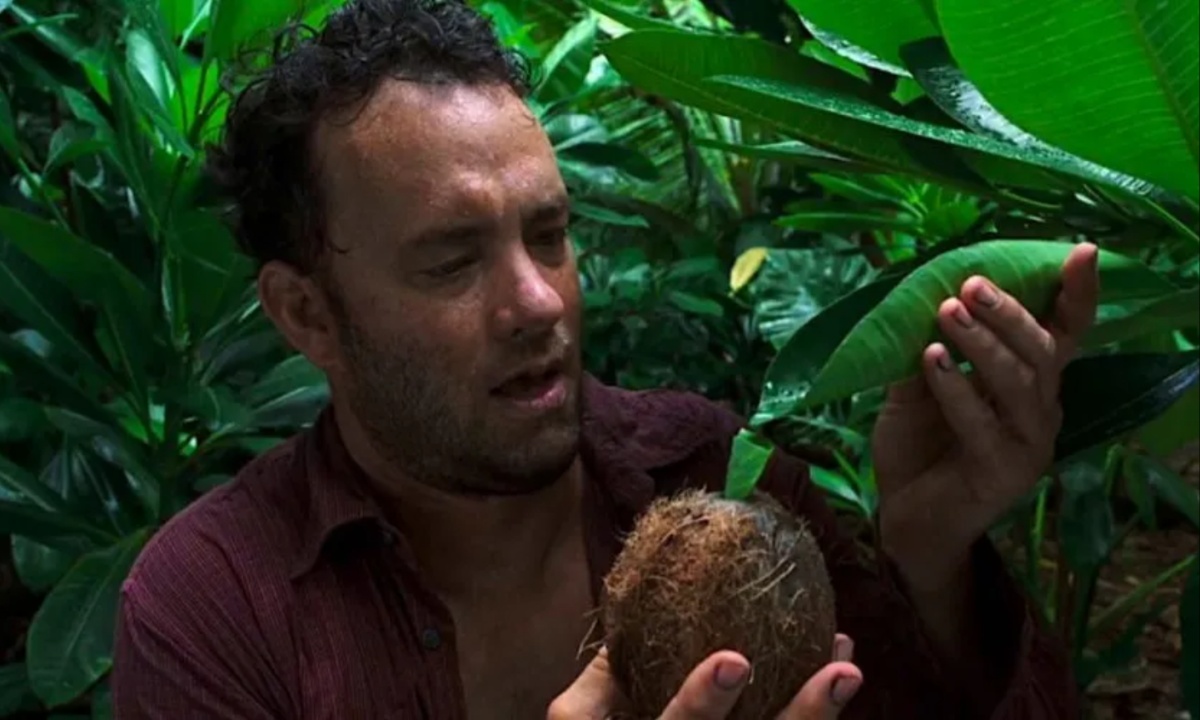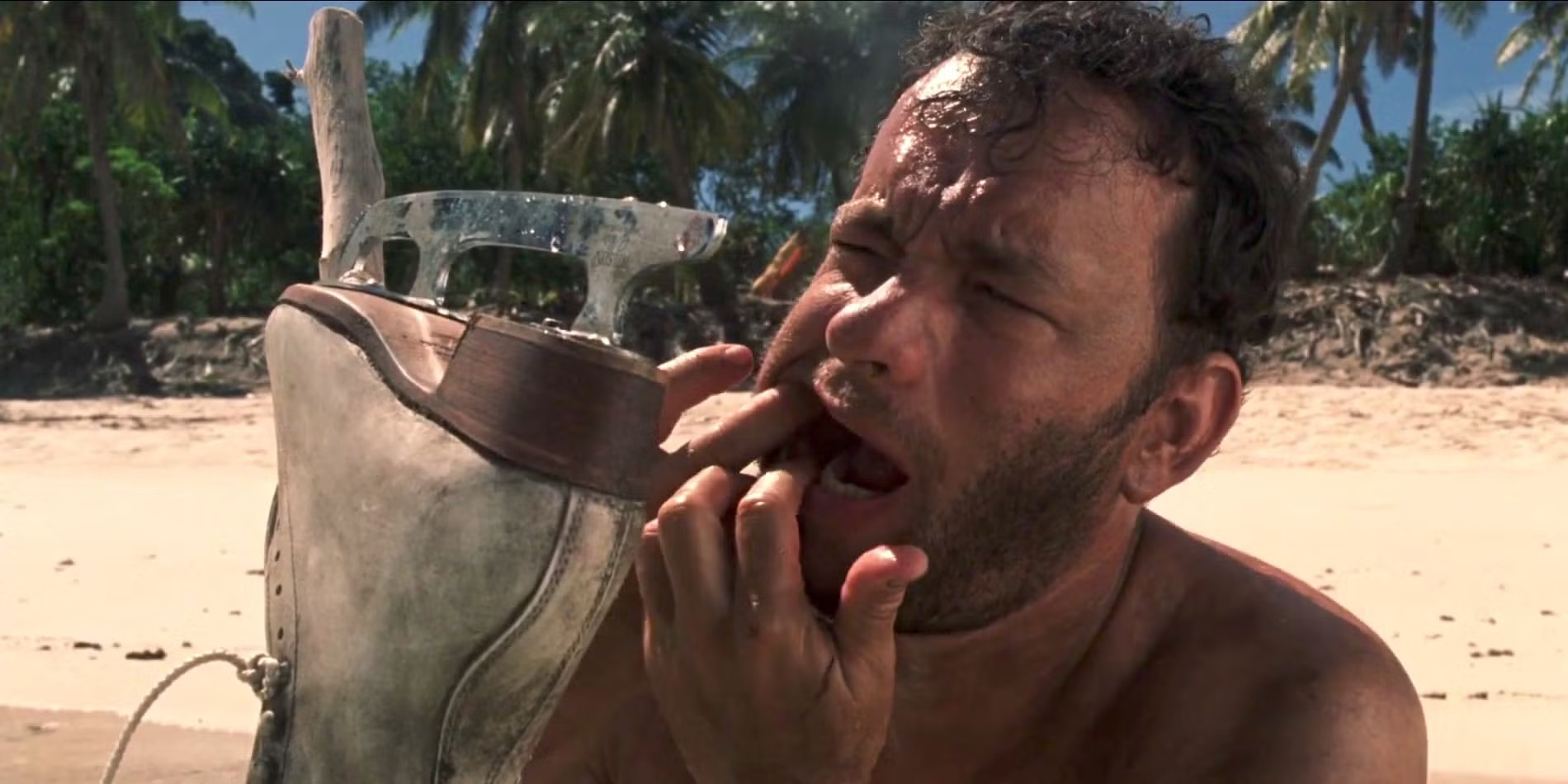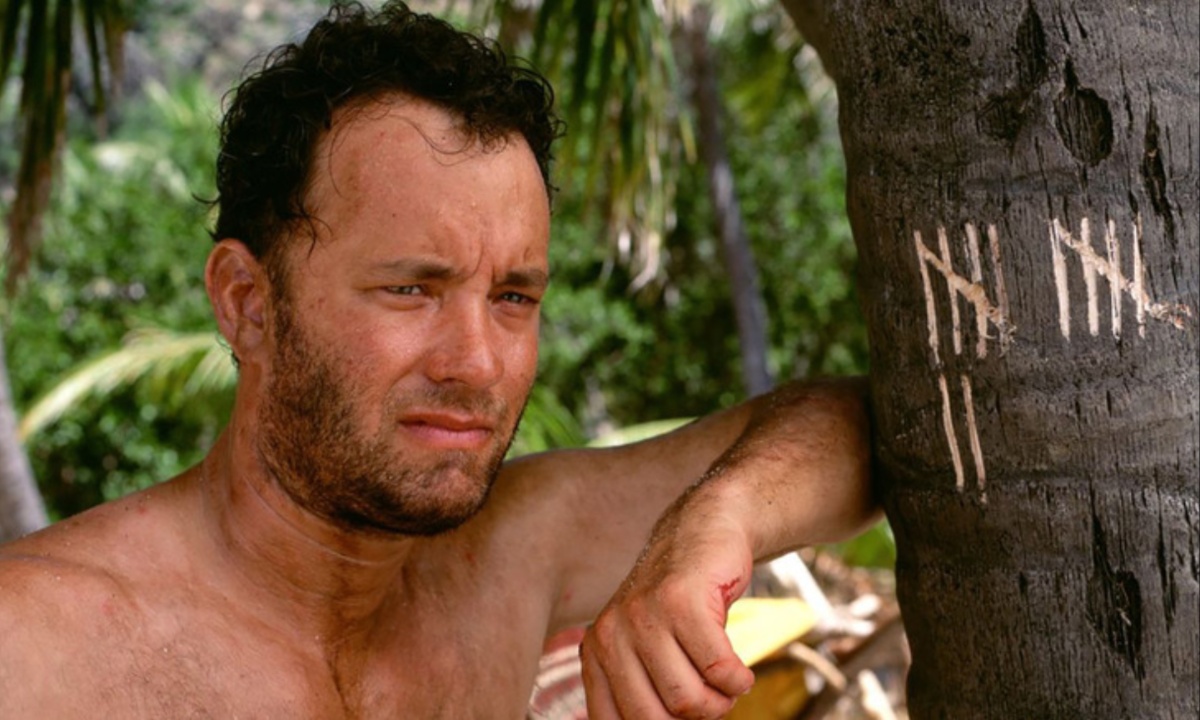The film Cast Away may be best known for its iconic scenes with Tom Hanks’ character, Chuck Noland, and his volleyball companion Wilson. However, beneath its comedic parodies lies a profound story of human resilience, companionship, and survival. Directed by Robert Zemeckis, this 2000 film showcases the enduring spirit of its lead character as he confronts isolation, loss, and the search for meaning in life, ultimately leaving audiences to ponder what it means to survive.
Tom Hanks plays Chuck Noland, a FedEx troubleshooter whose plane crashes, leaving him stranded on a deserted island. As the only survivor, Chuck’s world is reduced to the basics of survival. The washed-up FedEx packages, including the body of the pilot, become his lifeline. Despite initially avoiding opening the packages, Chuck eventually begins using them to craft tools and shelter, marking a shift in his outlook on life. This marks the beginning of his long and agonizing four-year journey of survival on the island.
Throughout his isolation, Chuck struggles not just with survival but with loneliness. A critical moment comes when he cuts his hand trying to start a fire. In a moment of frustration, he throws objects from the packages, and one of them— a volleyball named Wilson—becomes his companion. This symbolic act, turning an inanimate object into a friend, underscores Chuck’s need for connection, an emotional anchor amidst the overwhelming solitude. Wilson becomes a crucial presence, illustrating the human need for companionship, even in the most dire circumstances.
After years of painstaking effort, Chuck constructs a raft from various materials he gathers on the island, preparing to leave in search of rescue. Tragically, during his journey, Wilson is lost at sea, floating away from the raft. Chuck’s mourning of Wilson is more than just the loss of an object; it reflects the emotional toll of his isolation. The loss symbolizes the fragility of human connection, even when that connection is created out of desperation. Finally, Chuck is rescued by a passing cargo ship, but he is forever changed by his ordeal.

Reuniting with Civilization and Kelly
Upon returning to civilization after four years, Chuck is filled with a desire to reunite with his girlfriend, Kelly Frears (Helen Hunt), whom he believes is his primary motivation for survival. However, Chuck’s return to the world is not as he expected. Kelly has moved on with her life, having mourned Chuck’s presumed death. She is now married to another man, Jerry, and has a family. The reunion, while emotional, is bittersweet, reflecting the passage of time and the way life moves forward, regardless of individual desires.
One crucial element in Chuck’s journey is an unopened FedEx package adorned with angel wings, which he holds onto throughout his time on the island. This package symbolizes hope and the belief that he is meant to deliver it, no matter the cost. After his reunion with Kelly, Chuck embarks on a journey to deliver this package, now a symbol of his own survival and transformation. He finally delivers the package to a house in Texas, leaving behind a note that it “saved his life.” This action, along with his meeting with a woman in a truck with angel wings painted on it, signals Chuck’s personal growth and the closing of one chapter in his life.
The angel wings, alongside the stopped pocket watch given to Chuck by Kelly, are rich with symbolism. The clock, frozen in time, represents the end of Chuck and Kelly’s relationship, while the angel wings symbolize hope, guidance, and the possibility of redemption. As Chuck works for FedEx, he is both a protector and messenger, reflecting the duality of life as both a deliverer of goods and a bearer of personal messages. The title Cast Away itself carries a deeper meaning, as it refers not only to Chuck’s literal situation but to his symbolic act of casting away his past life and embracing the unknown future.
In an early draft of the script, the contents of the angel wings package are revealed to be jars of homemade salsa and a heartfelt letter from a woman named Bettina, hoping to rekindle a failing marriage. This revelation suggests that the plane crash caused more than just Chuck’s separation from Kelly—other lives were impacted as well. However, the film’s decision to leave the package unopened adds to the ambiguity and symbolic nature of the story, avoiding the direct implication that Chuck would end up with Bettina. This decision also helps preserve the film’s central themes of personal growth and the complex nature of human relationships.

The Ending’s Ambiguous Hope
The final scenes of Cast Away leave Chuck at a crossroads, both literally and metaphorically. After delivering the angel wings package, he meets a woman who directs him to a new path, with the open road ahead symbolizing the endless possibilities for his future. The film ends with Chuck standing at the intersection, contemplating his next step, a poignant reminder that life is filled with uncertainty but also immense potential. The ambiguity of the ending—Chuck alone, yet not hopeless—offers a message of hope: even after a great loss, one can find a new path forward.
Tom Hanks has spoken about the film’s deeper themes, focusing on the unique kind of loneliness Chuck experiences on the island. In an interview, Hanks explained that Chuck’s survival was as much about overcoming his own desperation as it was about physical survival. The film’s ending, in which Chuck does not reunite with Kelly, offers a mature perspective on how circumstances, time, and timing shape relationships. The final scenes suggest that while Chuck’s survival was driven by his love for Kelly, his life is now open to new possibilities, and he can begin again, free from the weight of the past.
Cast Away is more than a survival film; it is a meditation on human resilience, the passage of time, and the transformative power of isolation. While Chuck’s journey is physically challenging, it is his emotional and psychological survival that defines the film. The themes of hope, loss, and personal growth resonate long after the credits roll, making Cast Away a timeless exploration of what it means to survive and to move forward in life.



